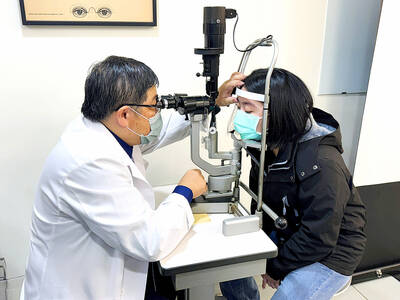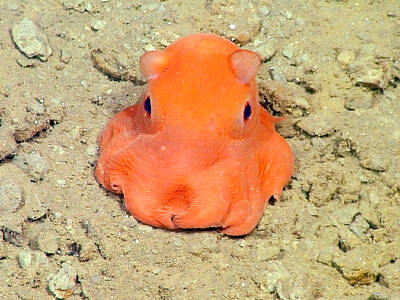It has been 36 years since Tom Cruise’s high-flying blockbuster Top Gun graced our screens, and its long-awaited sequel Top Gun: Maverick is now playing in theaters. However, when the trailer of the sequel was released three years ago, the Taiwanese flag patch stitched on the bomber jacket that Cruise’s character wore was removed, but has now been restored for the theatrical release of the film.
Last Monday, a test screening of Top Gun: Maverick was held in Taiwan. There was loud cheer and applause from the moviegoers when they spotted the blue-sky-with-white-sun Taiwanese flag back on Cruise’s jacket.
The iconic jacket made its first appearance in the 1986 original, Top Gun. It was made to commemorate the US navy cruiser USS Galveston’s operation in the Far East off Japan and Taiwan from 1963 to 1964. Therefore, on the back of the leather jacket, there were patches of Taiwanese, Japanese, and American flags, along with the United Nations’ emblem.

Photo courtesy of UIP via Liberty Times 照片:UIP提供
Back in 2019, the sequel trailer stirred up a controversy when viewers noticed the Taiwanese flag scrubbed from Cruise’s jacket, while the American and the United Nations’ flags remained intact. This led former US secretary of state Mike Pompeo to urge Hollywood to stop bowing to Chinese censorship in exchange for its market.
Top Gun: Maverick hit Taiwanese movie theaters on Wednesday last week.
(Translated by Rita Wang, Taipei Times)
好萊塢男星湯姆克魯斯主演的電影「捍衛戰士」續集,睽違三十六年回歸,但三年前電影預告首次釋出時,湯姆克魯斯飛行外套上的中華民國國旗一度被消失,沒想到正片竟被保留。
「捍衛戰士:獨行俠」上週一舉辦台灣媒體試片,「阿湯哥」湯姆克魯斯穿著的飛行員夾克上出現青天白日滿地紅「中華民國國旗」時,引起滿堂喝采。
阿湯哥穿著的這件經典外套,在一九八六年電影「捍衛戰士」首集就曾出現,是紀念美軍巡洋艦加爾維斯敦號一九六三到一九六四年遠東巡弋任務,由於行經日本、台灣等國家,繡有中華民國、日本、美國國旗與聯合國旗幟。
不過三年前,續集「捍衛戰士:獨行俠」預告釋出時,阿湯哥外套上的中華民國國旗一度「被消失」,只剩下美國國旗與聯合國旗幟的圖案,引發熱議,前美國國務卿蓬佩奧當時更呼籲好萊塢應挺直腰桿,不要為了票房屈服於中國審查。
「捍衛戰士:獨行俠」已於五月二十五日全台上映。
(中央社)

Bilingual Story is a fictionalized account. 雙語故事部分內容純屬虛構。 I stand by the Miluo River as dusk falls. The court betrayal is too much. I served Chu with loyalty. I forged alliances and fought corruption. But the whispers of jealous courtiers, the murmurs of treason, spoke louder. The king cast me out. The water looks calm. It promises peace. I step in. The river is cold against my legs. I hear shouts behind me — fishermen calling my name. I keep walking. The calls grow louder, but I do not turn around. The water rises to my chest. It pulls at me. I

In Taiwan, people can use a platform to rent a power washer for a weekend or share unused garage space for someone’s storage needs. These are examples of the sharing economy, a consumption model that has gained widespread adoption worldwide. This approach allows people to rent or share assets like cars, homes or even services, typically through online platforms. This innovative model poses a simple yet powerful question: why purchase infrequently used items when sharing is more practical? By making useful but idle resources accessible, the sharing economy turns them into sustainable opportunities. Internationally, platforms like Airbnb and Uber have popularized

A: Recently, I’ve been seeing mosquitoes flying around in front of my eyes. The doctor said it’s the “flying-mosquito disease.” B: Flying mosquitoes? What a strange name. A: They’re actually called “floaters” in English, meaning floating debris. When fibrous substances in the vitreous body inside the eyeballs increase, floaters can appear in the visual field. B: Oh my goodness. Can you get rid of them? A: According to ophthalmologist Horng Chi-ting’s research, taking the enzymes of certain fruits is likely to help reduce floaters. A: 我最近一直覺得眼前有蚊子飛來飛去,結果醫生說是「飛蚊症」。 B: 飛蚊症?好奇怪的病名。 A: 英文名稱叫「floaters」, 也就是漂浮物的意思。 因為眼球的玻璃體中纖維化物質增多,導致視野出現漂浮物。 B: 天啊!要怎麼把蚊子趕走? A:

Continued from yesterday(延續自昨日) https://www.taipeitimes.com/News/lang Many people may be familiar with flapjack octopuses thanks to Pearl, a charming character from the Pixar film Finding Nemo. However, her portrayal presents several scientific inaccuracies. In reality, flapjack octopuses are deep-sea creatures, which are unsuitable for the brightly lit shallow reef environment depicted in the film. Their primary defense mechanism relies on their reddish coloration, which would be ineffective in the well-lit shallows. Pearl’s famous line, “You guys made me ink,” is another fictional detail that is not consistent with the observed actions of real flapjack octopuses. As common as it is in many other octopus